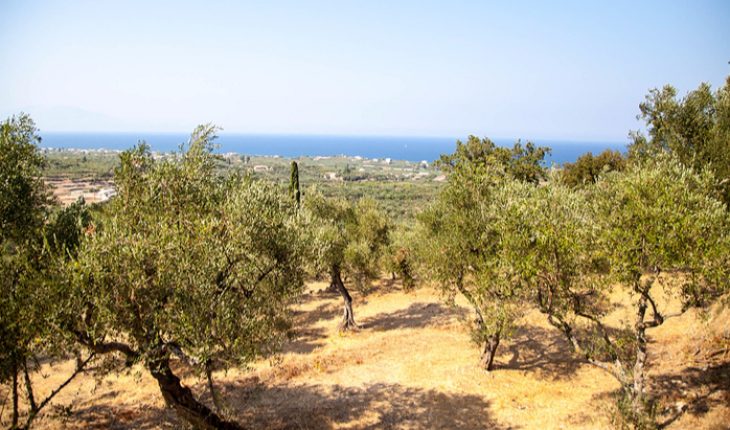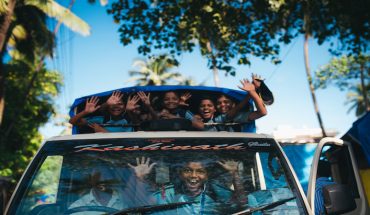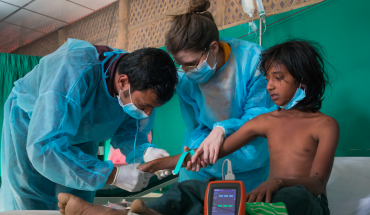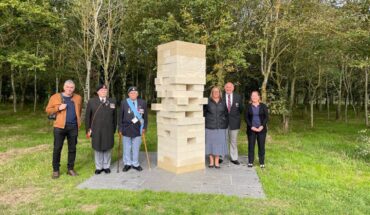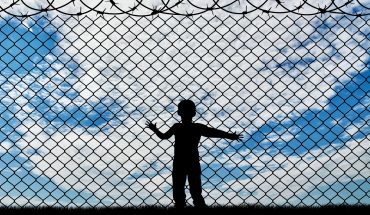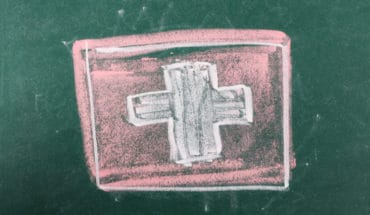Conor Kenny is a doctor who has recently returned from Greece. He began his assignment working at Idomeni, a transit camp for refugees on the Greek border with the Former Yugoslav Republic of Macedonia. After residents of the Idomeni camp were evicted, Conor moved to Lesbos to work providing healthcare in specialised camps designated for the most vulnerable refugees on the island.
Who so neglects learning in his youth, loses the past and is dead for the future – Euripides
The summer sun shines hard on this rocky, dusty North Aegean outcrop.
The spectacular winding road from Mytilini to the north of Lesvos island which facilities my journey to the camp has borne witness to an eventful number of years. Images of thousands of refugees arriving on these shores and making their way to the main port will live long in local memory.
“Inevitably, in the flow of migration, the young are caught in the current.”
Literally on the ‘fault line’ of the European migration crisis, I stare over my right shoulder across the breaking waves and on to the Turkish coastline just 10 kilometres away. It provides a spectacular backdrop. This beauty, however, contrasts with a small number of children’s high-visibility orange life jackets scattered on the craggy and isolated coastline rocks, serving as a reminder of shipwreck, lost opportunity, diminished hope and tragedy. Inevitably, in the flow of migration, the young are caught in the current.
It is now 38 degrees in the shade and the hilly sandstone quarry on which the camp is built radiates a white hot heat forcing the children to stay inside their tents.
I report to the dedicated staff at the camp for 60 unaccompanied children, away from the detention centre in Moire. A joint effort between MSF, Praksis and Save the Children, the camp is manned 24/7, and was established to act as a temporary (three week) safe space for children who arrive without any adult family members, who are waiting to be relocated to the mainland.
At the start of the shift, I am given my directions by the camp supervisor. Three boys have coughs and colds. Another has a painful foot after standing on a sea urchin, and someone “may have broken his finger playing cricket”. And then … “you will also need to look at the wounds on X’s arm, he cut himself again last night.”
X is 16 years old.
There is a brief moment of silence – as always with these announcements – despite the fact they are now so routine. Tattoos, burns to the skin, overdose, near suffocation.
I take a deep breath in. “Any idea why he cut himself?”
“He has no idea what will happen – he is scared of deportation, he wants to leave.”
I think to myself – the signs were there. Regularly arriving into the clinic with ‘general body pain’ and isolating himself from group activities. Perhaps he is depressed, or anxious – his journey to get here has been traumatic; escaping a conflict which was alien to his youthful innocence. Running the gauntlet of abuse and exploitation, he has grown up fast.
I assess him first. His old cuts have healed well but his visible scars are permanent. We dress the wounds and treat him. We explore his concerns. He is a teenager – there is a lot he does not want to say right now, but he will see the camp psychologist who works hard with all the children here.
“He is a teenager – there is a lot he does not want to say.”
One might want to reflect on the plight of the unaccompanied minor arriving in Europe. In theory they are given a special status due to their level of vulnerability. The situation they find themselves in is deeply frustrating and cases of self-harm are well documented.These children are here alone, in a strange country, a different culture. Needing to now ‘act European’ generates a confusion about what their identity is. Many have not been in contact with parents or siblings for months. Many blame themselves for their predicament, triggering a negative spiral of anger which also leads to self-harm.
The negative spiral is exacerbated by their unique experiences. Many of their families and communities are war-torn and broken. These pillars which are the foundations of relationships are now lost.
For some of the children, this is the third camp they have lived in. The transient nature of their lives and that of the people around them makes forming relationships even more complicated and triggers extremes in their spectrum of emotions. Such emotional extremes are fuelled even further by the confusing information about their next destination – when they will leave and where they will leave to.
“The environment of a temporary camp cannot provide the opportunities which these children deserve.”
While not a detention centre, the environment of a temporary camp cannot provide the opportunities which these children deserve. As well as losing the intergenerational lessons provided by family and community, they have also lost access to the formal education which would allow them the chance to reach their full potential or interact with and learn from others with experiences different to them.
For the majority of these boys, their youth is being consumed by an inefficient and bureaucratic asylum process, meaning they will be left ill-equipped to navigate a complex world. Without appropriate, urgent and sustainable intervention for refugee children arriving without the support and protection of their families, they are at grave risk of becoming Europe’s lost generation.
MSF provides medical aid where it is needed most. To donate to MSF, please click here. To read more from our medical staff around the world, and to find out more about working with MSF, please click here.
- A lost generation – working with young refugees in Greece - 14th October 2016
